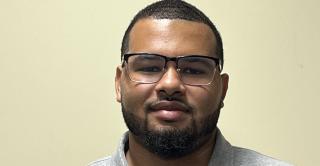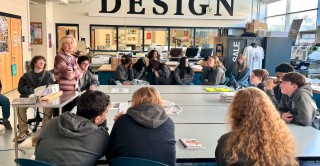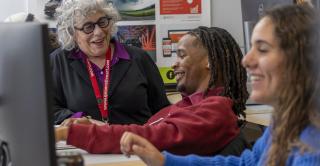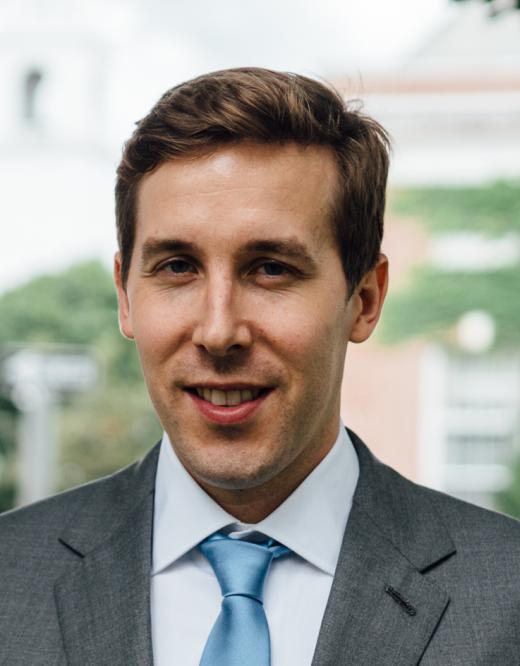
Drake Andersen is a composer, technologist, and scholar of avant-garde music and music technologies. He is an assistant professor in the Department of Music at Central Connecticut State University where he teaches courses in music technology and other subjects.
His creative work encompasses concert music, electroacoustic soundscapes, interactive sound installations, and software for live performance. His music has been performed and recorded by preeminent contemporary artists and ensembles including Rhythm Method, Decoda, Contemporaneous, loadbang, and Jenny Lin, and heard at venues throughout the United States and Europe including Symphony Space, (le) poisson rouge, New World Symphony Center, and the Park Avenue Armory.
His research examines how musical performance is co-created by individuals, technologies, institutions, and other social formations, with a focus on improvisation and electronic music. He has presented at national and international conferences including the annual meeting of the American Musicological Society and the World Science Fiction Convention (Worldcon). His scholarship has appeared in journals including the Journal of Music Theory, the Journal of the Society for American Music, and Organised Sound.
He holds the PhD from the CUNY Graduate Center, as well as degrees from the Manhattan School of Music and Macalester College. He has previously taught at Vassar College, Brooklyn College, and Montclair State University.
Music technology, electronic music, digital scores, audio production, music composition, experimental music, improvisation
Recordings
The Pilot (EP). As Deep Copy (2024) (link)
Blue. As Deep Copy (2021) (link)
Fossil Record. With Jay Sorce (2021) (link)
The Etudes Project, Vol. 1. Jenny Lin, Piano (2019) (link)
Articles
"Performance Spaces for Improvised and Notated Music." Journal of Music Theory 67/1 (2023)
"Spaces for People: Technology, Improvisation, and Social Interaction in the Music of Pauline Oliveros." Organised Sound 27/2 (2022)
"Hearing Epistemic Sound in Experimental (Music) Systems, 1958–1973."
Journal of the Society for American Music 16/4 (2022)
"Earle Brown and the Minimalist Dialectic." Perspectives of New Music 59/1 (2021)
"(Per)forming Open Form: A Case Study with Earle Brown’s Novara." Music Theory Online 26/3 (2020)
"'What can they have to do with one another?': Approaches to Analysis and Performance in John Cage’s Four2." Music Theory Online 23/4 (2017)
Book Chapters
"Conducting Experiments: Sound and Conductors’ Movement in Experimental Music" in Körper und Klänge in Bewegung [Bodies and Sounds in Motion]. Ed. Stephanie Schroedter. Vienna: mdwPress. (Forthcoming)
"Open Source Performance Practice: The Laptop as an Instrument of Musical Democracy" in Historical Performance and New Music: Aesthetics and Practices. Eds. Rebecca Cypess, Estelí Gomez, and Rachael Lansang. Routledge. (2023)
Selected Presentations
"The Sounds of Futures Past: Speculative Sound Design," World Science Fiction Society (Worldcon), Academic Programme, Glasgow, August 8–12, 2024.
"Open Source Music: A Model for Deliberative and Participatory Decision-Making,” Rethinking Participatory Processes through Music, University of Huddersfield, virtual, January 14–15, 2022.
"'When the Earth Split in Two’: Timbre and the Cyclic Concept in St. Vincent's Masseduction (2017),” Popular Music Interest Group Meeting at the Annual Meeting of the Society for Music Theory, New Orleans, LA, November 10–13, 2022.
"LINEWAVES: Coding in the Music Classroom," Columbia Music Scholarship Conference, Columbia University, virtual, April 17, 2021.
"Indra: A Virtual Score Platform for Networked Musical Performance," International Conference on Technologies for Music Notation and Representation (TENOR), Hochschule für Musik und Theater, Hamburg, virtual, May 10–13, 2021.
"Networked Open Form: Conductor-Mediated Improvisation with Indra," International Computer Music Conference (ICMC), Pontificia Universidad Católica de Chile, Santiago, virtual, July 25–31, 2021.
Recent awards include the Publication Award from the Post-1945 Music Analysis Interest Group of the Society for Music Theory and an ASCAP Plus Award.
Recent research supported by grants from the Charles Deering McCormick Library (Northwestern University), the Paul Sacher Stiftung, Vassar College, and the Society for Music Theory.
American Musicological Society
Society for Electroacoustic Music in the United States (SEAMUS)
Currently serving as editor-in-chief of Journal SEAMUS
Society for Music Theory




